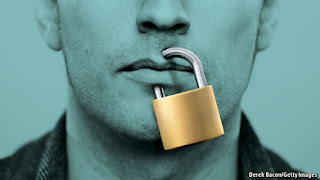The Darker Side of Saint Jacinda
She
has saved us, has she not? Tens of thousands of people who might have died
horribly in hospital from Covid-19, gasping and choking, are living happy,
fulfilled lives. Acting like a kind but firm teacher, Jacinda Ardern has shepherded
us and scolded us and praised us and kept us in after school for our own good.
And most New Zealanders – especially those not losing their jobs and businesses
and remaining on full pay by having a government-funded job, like school teachers
– love her for it. Oh the economy will sort itself out, they say. We’ll just
have to pull our belts in a bit. The pandemic might even be a blessing in
disguise, showing us how to have a low-carbon economy.
The
image is of madonna with child. It is no coincidence that she is adored for
having a child while running a country, with a smiling, attentive partner in
the background. She cared so much that every death (all 21 of them) from
Covid-19 was “a tragedy”, as her constant companion through all this,
Director-General of Health Ashley Bloomfield, put it. Yes, most of the casualties of the pandemic in
New Zealand were the elderly with other health conditions, who may have been
taken by the annual influenza, which causes "only about" 500 deaths on average (see the, now-deleted, official graphic below). But still, Ardern
conveyed that these corona virus were particularly tragic deaths, perhaps
because they happened on her watch, when she was in total control of the
country via the provisions of Alert Level 4 and a state or emergency.
But
during all this our saint, our madonna, shepherded an abortion bill into legislation
that is one of the most brutal in the world. Any woman, and by “woman” we are
talking about any female capable of getting pregnant, can obtain an abortion,
without restrictions, up to 20 weeks’ gestation. That is five months’ pregnant.
She can still get an abortion after 5 months, but her health practitioner (who
can be a nurse
practitioner) needs to consult with another health practitioner. Prior to 5
months they must advise the woman that counselling services are available, but
under section 13(2) “may not, as a condition of providing abortion services to
a woman, require the woman to attend counselling before or after the provision
of those services”.
So
a scared young girl, who finds herself pregnant but then hides it for month after
month, can arrange to get an abortion without having to talk to anyone about
it, or receive advice about the huge decision she is making.
There
had been criticism of the Bill in the latter part of 2019. The Abortion
Legislation Committee received 25,000
written submissions, but, clearly bored in advance, decided to hear only 150
oral submissions out of the 2,890 who opted to speak. In response to criticism,
the Chair of the Committee, Ruth Dyson, reiterated the committee's commitment
to hearing a range of perspectives while remarking that "hearing the same
thing over and over again doesn't add value to the committee at all." And
they would have heard the same thing again and again, because 91.6% of the
25,000 submissions opposed the Bill.
Andrew
Little, who sponsored the Bill, was thrilled after the Act came into force on
24 March, while everyone was distracted by the pandemic. Writing
in the Guardian (of course), he
said that “arguments opposing the change were arguments against abortion per se.
The old canards of ‘full term abortion’ and ‘unborn children’ were trotted out.”
Clearly any kind of moral objections to abortion up to birth are simply “old
canards”. Little painted the old legislation as the residue of a more sexist
age, and the new one as a victory for women’s rights. In describing the origins
of the Bill, he stressed that “Prime Minister Jacinda Ardern and I asked our
law commission to advise on shifting our abortion law from its criminal
framework to a health one.” And Jacinda and her Labour-led coalition are now triumphant:
We’ve moved on from an age when law-making and decisions were dominated by
men’s perspectives and an innate distrust of women making decisions on their
own health and ethical grounds.
Our new abortion law is not in the vanguard, but it is principled and truly
reflects New Zealand in the 21st century.
One could well ask, if women really are so good at making their own health and ethical decisions, why can't they decide whether to have an abortion before 20 weeks? Why can they not follow Ardern's approach for tackling New Zealand's Covid-19 response: "We must go hard and we must go early"? But Little may be right about the Act reflecting New Zealand in the 21st century. It is not a nice
place to be.
Kate
Flinders





Comments
Post a Comment